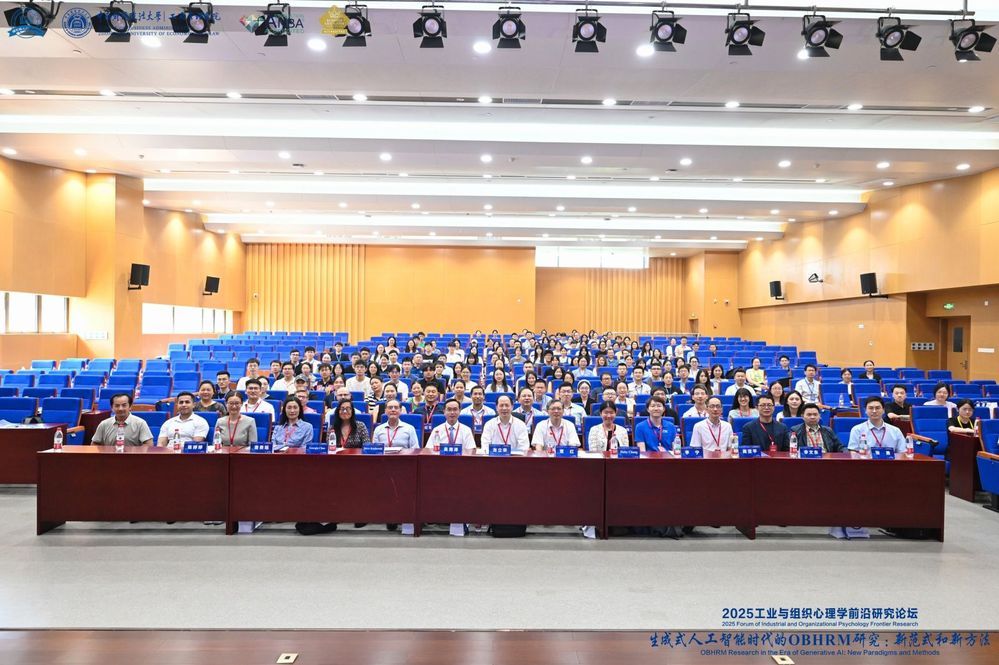
From July 5th to 6th, 2025, the 2025 Frontier Forum on Industrial and Organizational Psychology was successfully held at Zhongnan University of Economics and Law (ZUEL), themed “OBHRM Research in the Age of Generative AI: New Paradigms and Methods.” Jointly organized by the Human Resources Association of Hubei Province, the School of Business Administration (SBA) at ZUEL, and the Chinese Chapter of the Society for Industrial and Organizational Psychology (SIOP), the forum marked SIOP’s first in-person academic conference in mainland China.
The forum attracted over 200 experts and scholars from more than 60 leading institutions, including Tsinghua University, Peking University, Michigan State University, The Hong Kong University of Science and Technology, The Chinese University of Hong Kong, City University of Hong Kong, Wuhan University, and Lingnan University. The program featured four keynote speeches, seven parallel sessions, eight PhD sub-forums, and a face-to-face journal editor roundtable.
The opening ceremony on 6th July was held at the South Hall of Wenhan Building, ZUEL Nanhu Campus, and was hosted by Professor Wu Haitao, Dean of the School of Business Administration. Professor Qin Hong, Vice President of ZUEL, delivered the welcome address, highlighting how digital transformation is reshaping organizational structures and management paradigms. She emphasized the need for data-driven decision-making, ethical responsibility, and cultivating interdisciplinary talents. She also introduced ZUEL’s academic heritage and its integrated strengths in economics, management, and law, expressing hope for deeper academic collaboration in the field of organizational psychology.
Professor Long Lirong, President of the Human Resource Society of Hubei Province and faculty at Huazhong University of Science and Technology, delivered remarks on behalf of the organizers. He underscored that the forum established a significant trans-Pacific platform for academic exchange. As SIOP’s first academic event in mainland China, it marked a milestone in the internationalization of I/O psychology research. He called for scholars to explore new models for “human-organization co-development” in the digital era.
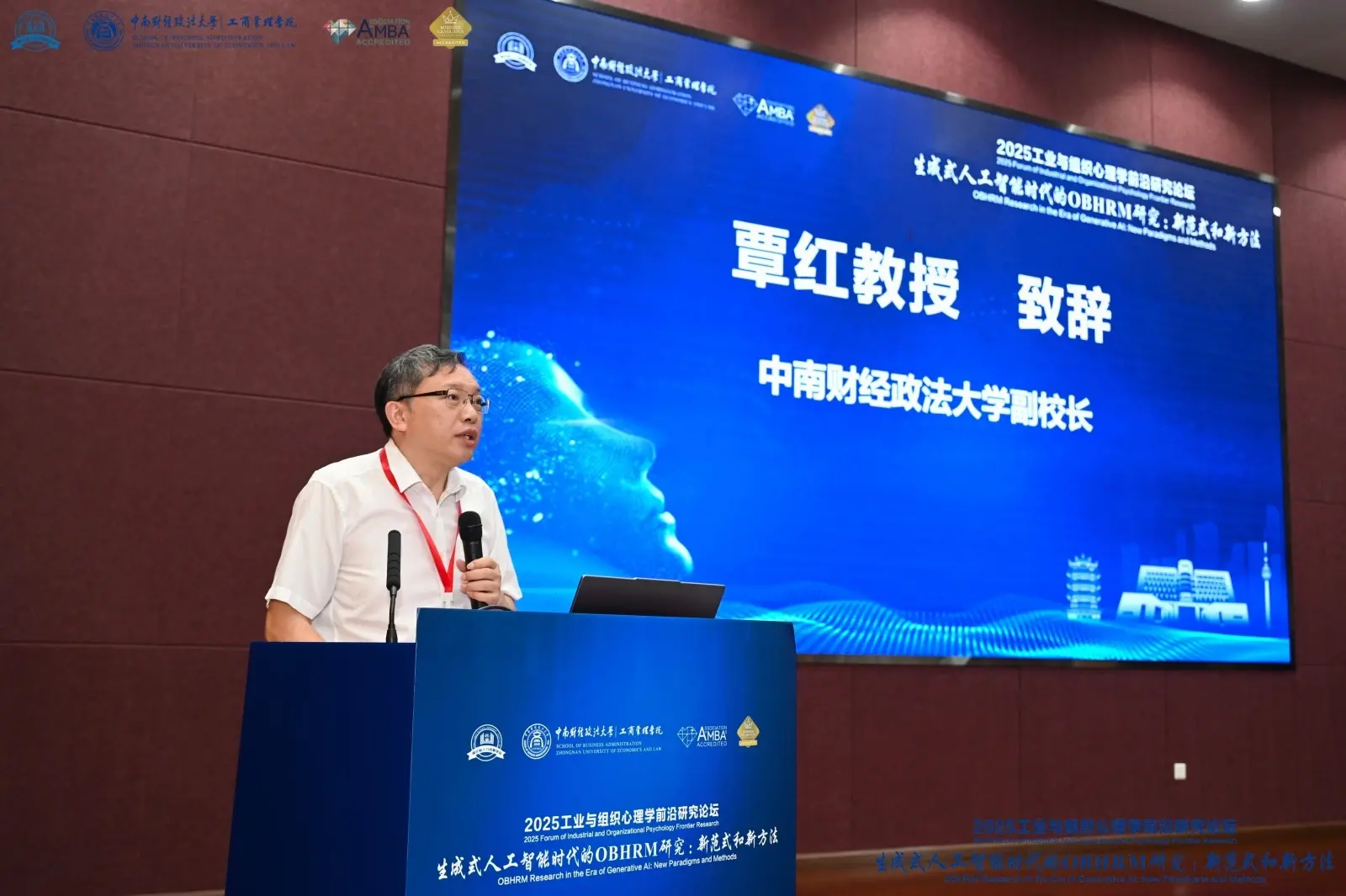
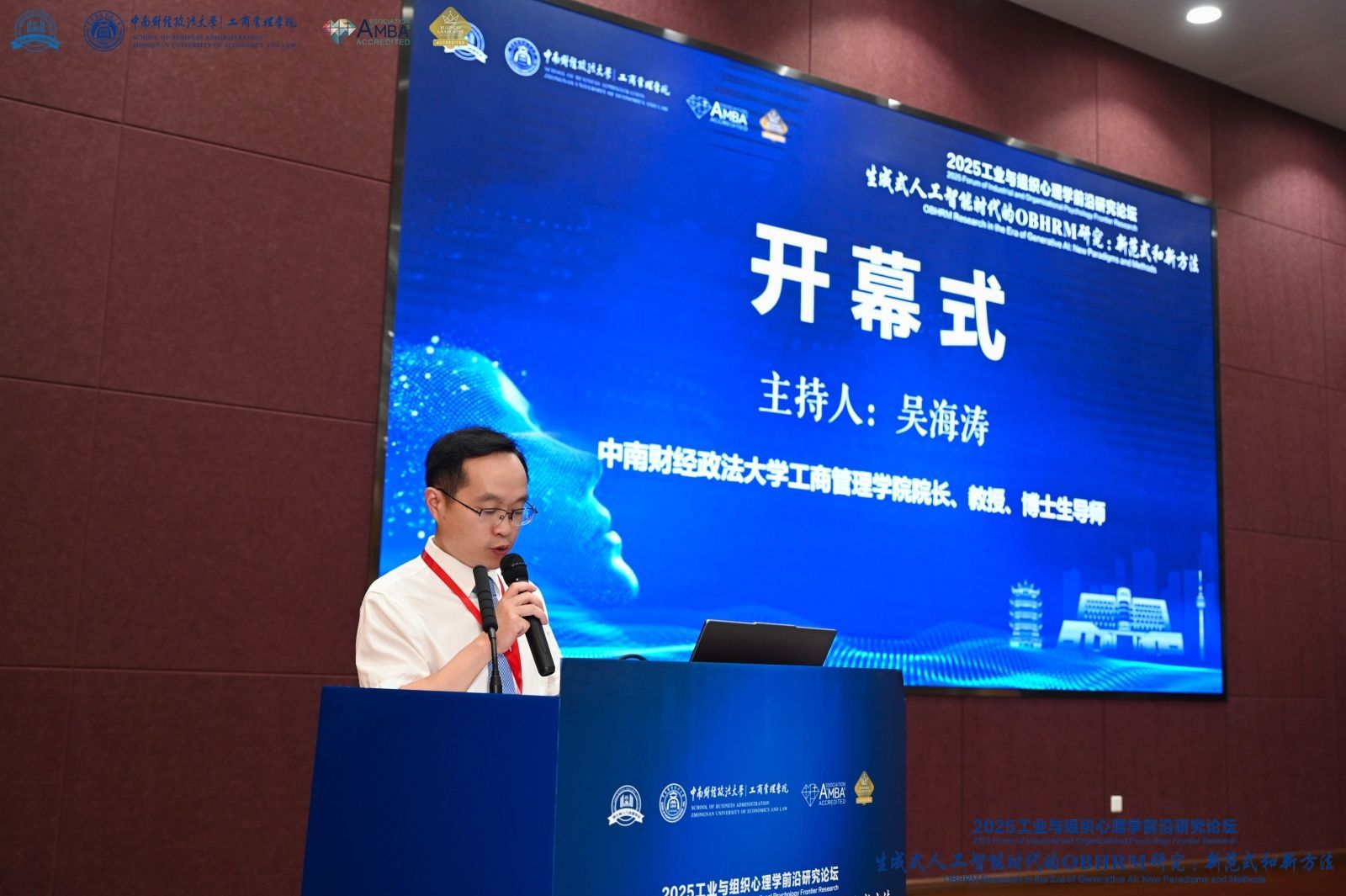
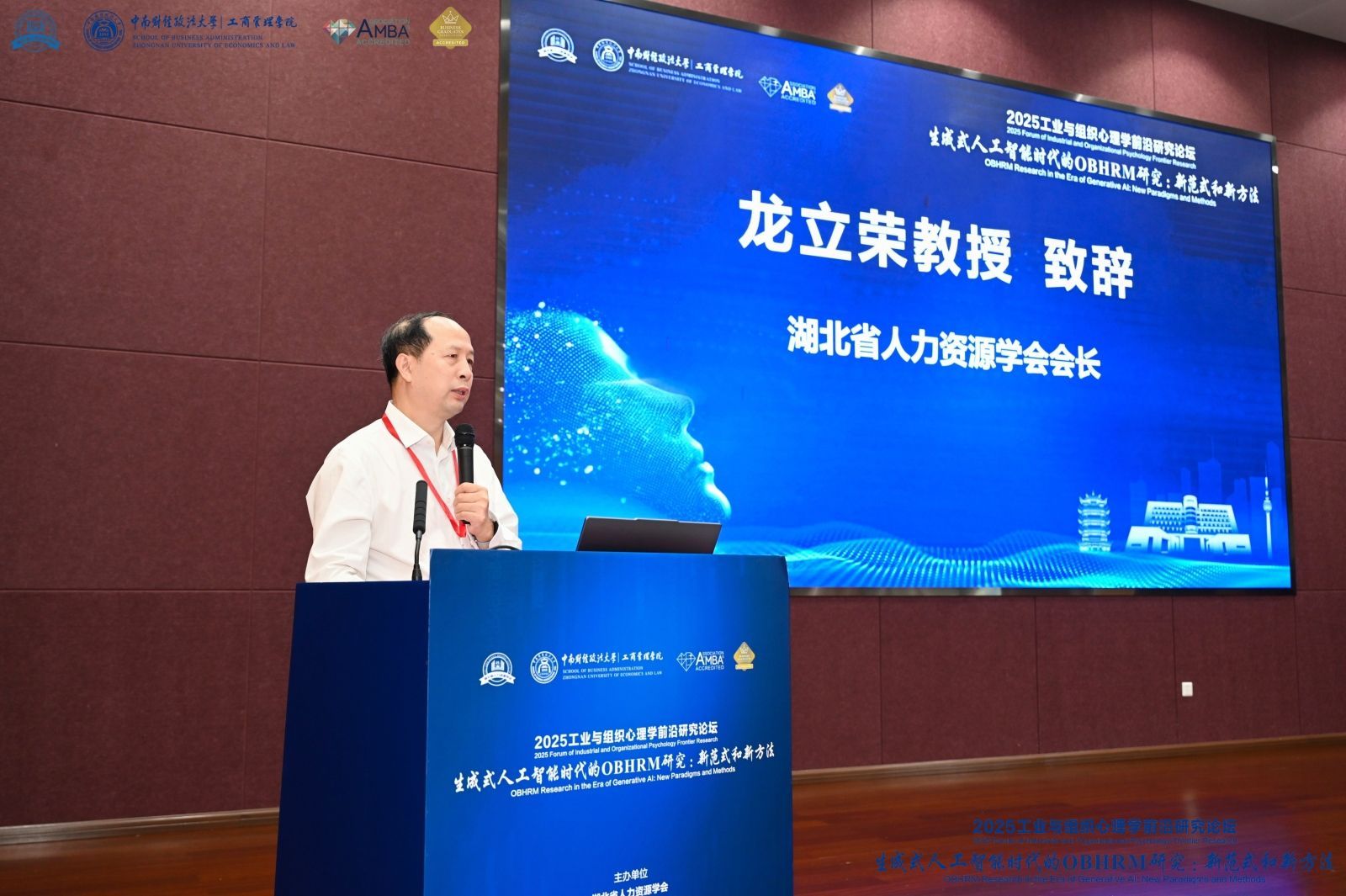
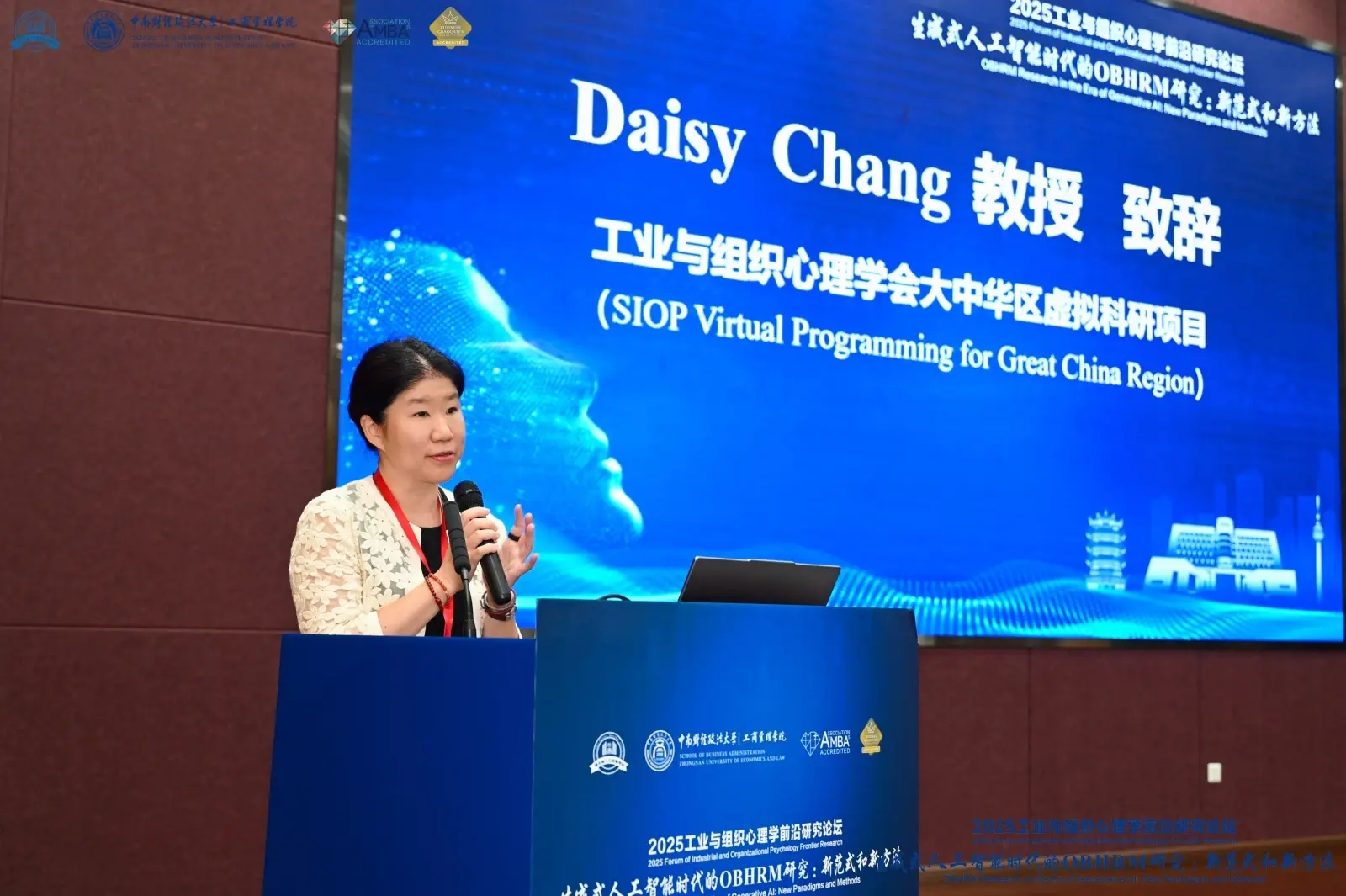
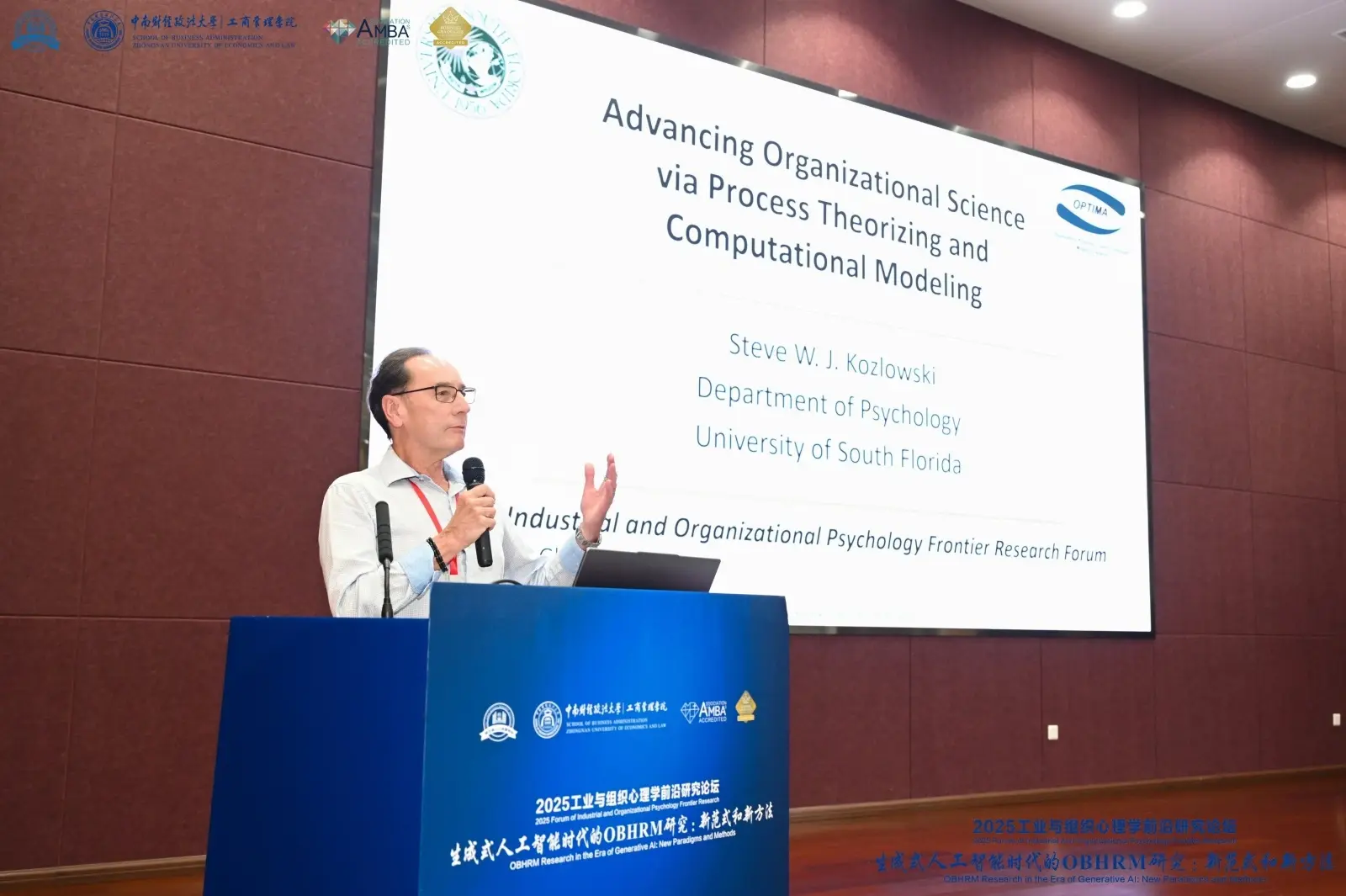
Professor Daisy Chang from Michigan State University, speaking on behalf of SIOP Greater China, reviewed the mission and progress of the organization. She highlighted how industrial and organizational psychology has evolved with technological advancements and stressed the importance of preserving human-centered values amid the rise of AI. She encouraged scholars to remain grounded in ethical considerations and to lead the discipline responsibly through the challenges of generative technologies.
Four keynote speeches were delivered on 6th July. Professor Steve Kozlowski from the University of South Florida emphasized advancing organizational science through process theorizing and computational modeling. He was introduced by Professor Chen Tingting from Lingnan University.
Professor Li Ning from Tsinghua University discussed the use of large language model–driven generative agents to simulate social and organizational behavior. Professor Gong Yaping from HKUST offered insights on the paradigm shifts in OB/HRM research brought about by generative AI. These two sessions were chaired by Professor Zhang Yong from the School of Economics and Business Administration, Chongqing University.
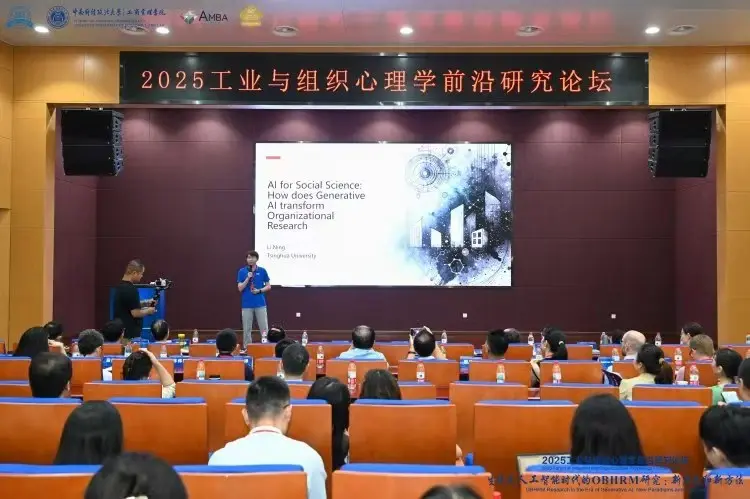
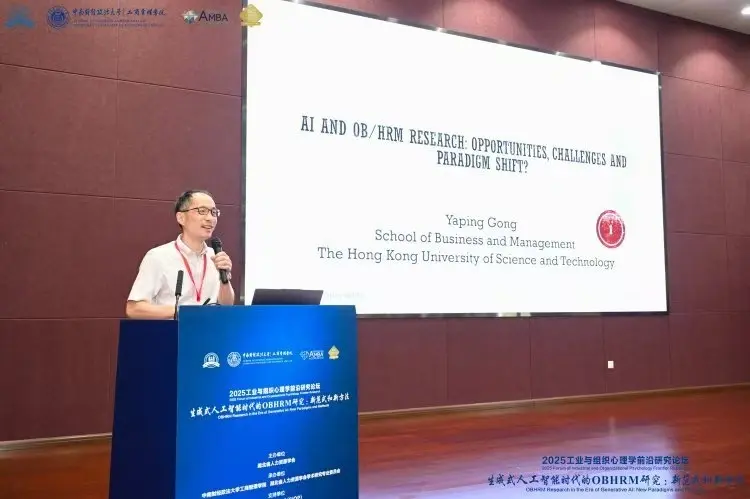
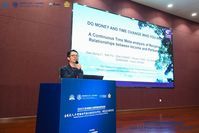
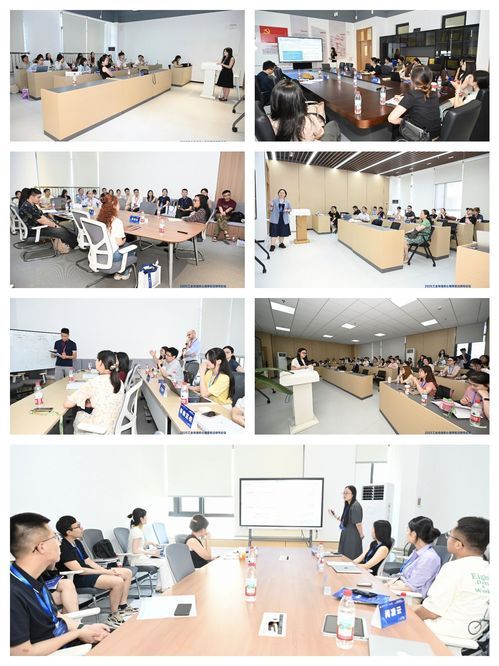
In the afternoon, Professor Li Wendong from CUHK presented findings on the dynamic reciprocal relationship between income and personality using continuous time meta-analysis. These sessions were chaired by scholars from leading universities. This session was chaired by Professor Tu Yidong, Deputy Director of the Human Resources Department and faculty member of the School of Economics and Management, Wuhan University.
Before the final keynote, seven parallel sessions were held, featuring nearly 30 academic papers. Leading experts from China and abroad provided detailed and constructive feedback, offering valuable suggestions on research improvement. These parallel discussions enhanced scholarly dialogue and knowledge sharing.
The closing ceremony on the afternoon of 6th July was hosted by Professor Wang Haijiang from HUST. Awards were announced for “Outstanding PhD Proposals” and “Best Papers.” Professor Steve Kozlowski and Professor Long Lirong presented the awards.
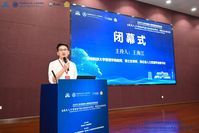
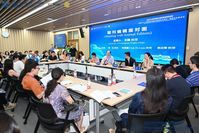
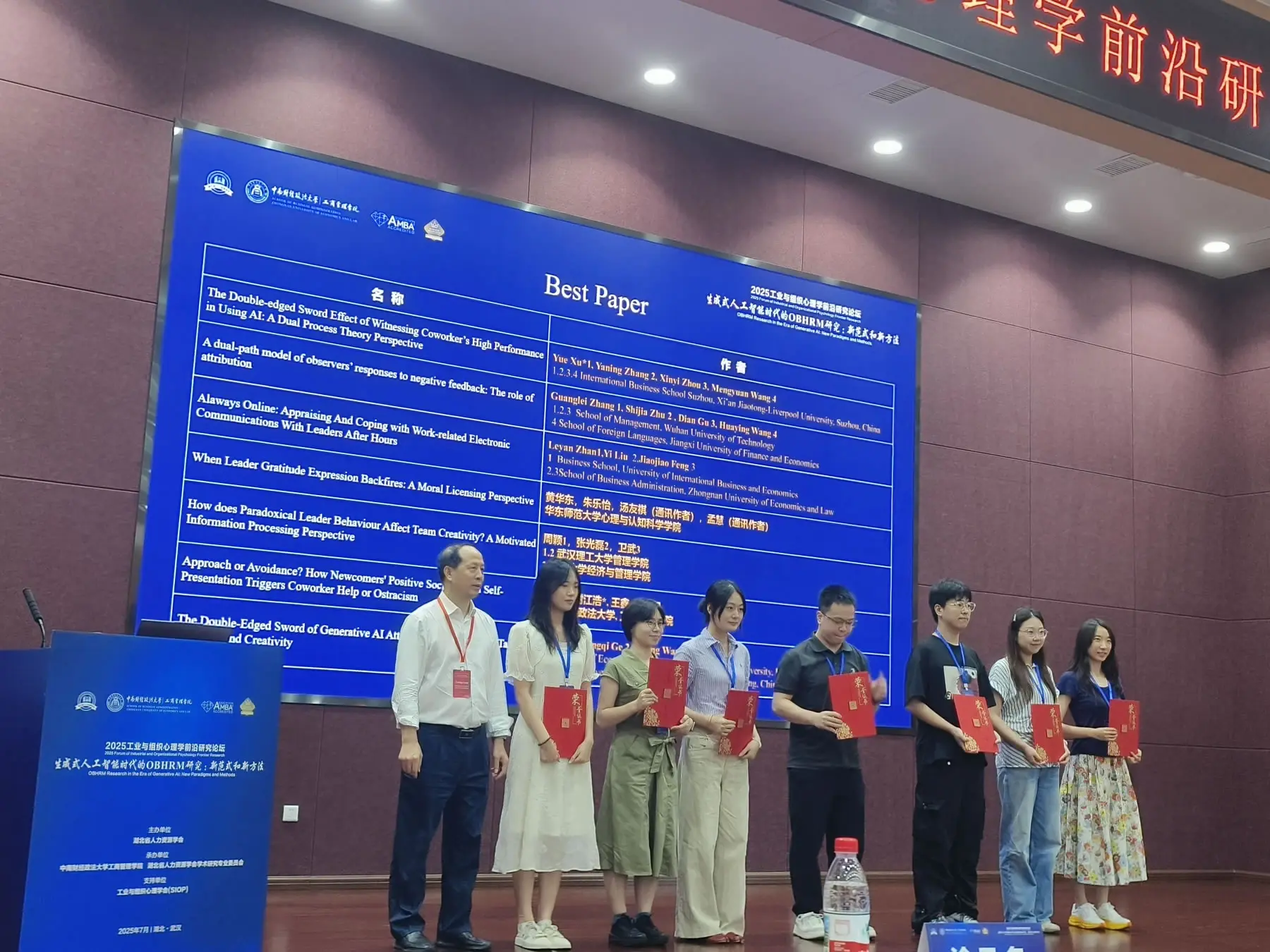
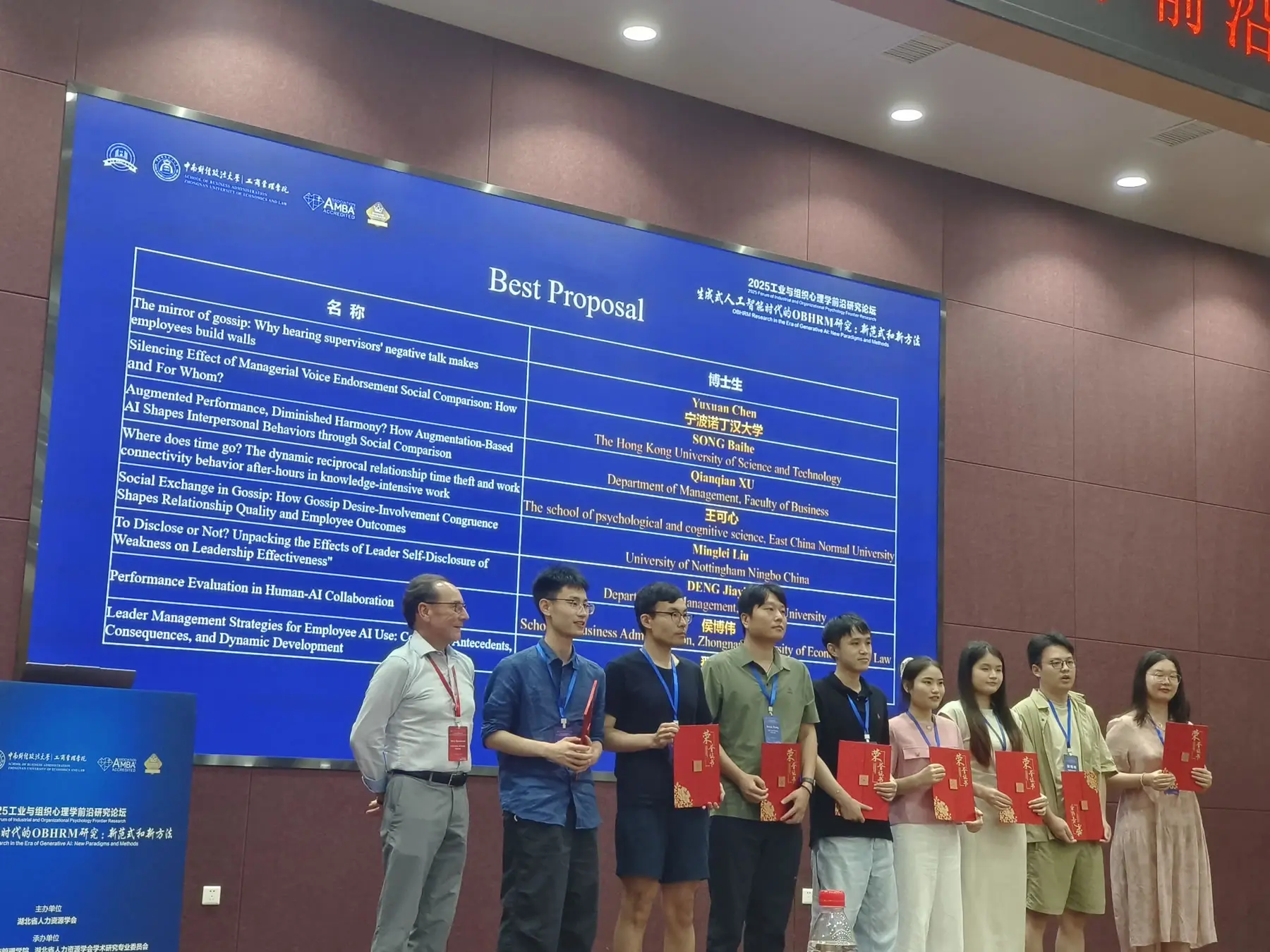
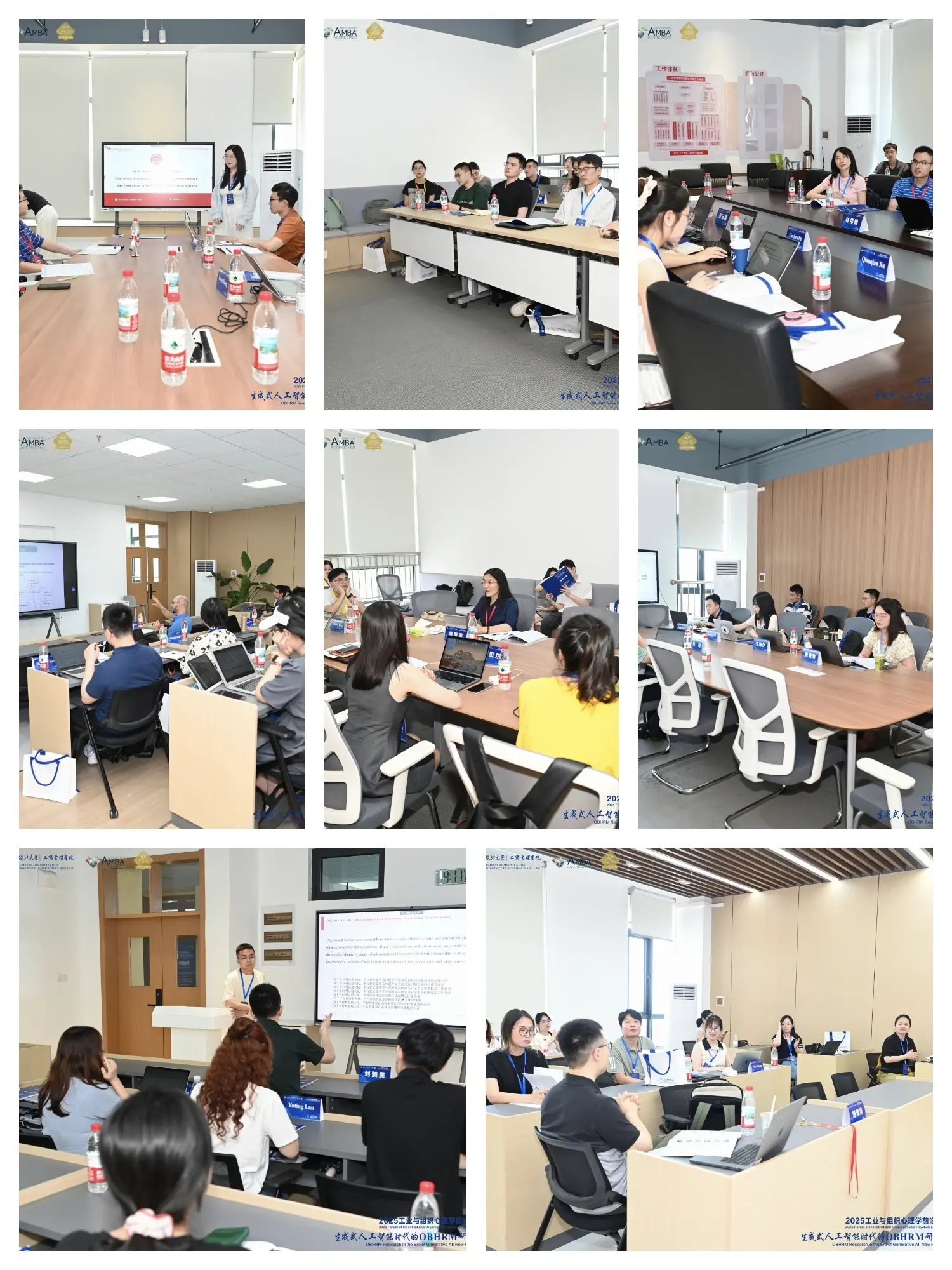
A day earlier, on 5th July, eight PhD sub-forums were successfully held, with 27 doctoral students participating and receiving feedback from senior faculty. The forum also hosted a journal editor roundtable chaired by Professor Wang Jie from the University of Nottingham Ningbo China. Editors from top-tier journals, including Journal of Applied Psychology, Academy of Management Journal, Personnel Psychology, Academy of Management Review, and Acta Psychologica Sinica, discussed the future of OBHRM research in the era of generative AI.
Bringing together world-class scholars and practitioners, the forum addressed key issues such as AI and organizational change, employee well-being, inclusivity and sustainability, methodological innovation, and the localization of OBHRM research. It provided a platform for interdisciplinary exchange, fostered integration between theory and practice, and contributed to advancing organizational science and societal development.
